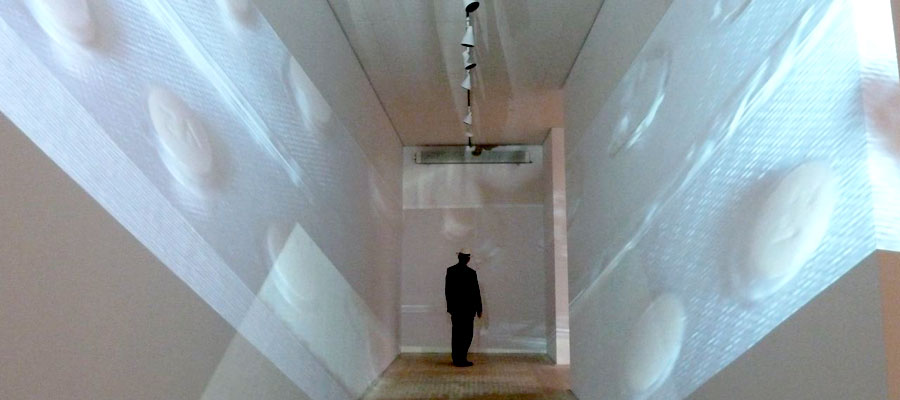Daglig Dosis – depression
It is estimated 272,250 antidepressant pills are taken each day in Denmark. In order to represent this quantity in a subjective way an average of 650 pills passed the camera every minute that the Daglig Dosis exhibition was open. These views were projected in a repeated cycle completely filling the large walk-through space, reflecting the overwhelming nature of depression on a personal basis.
Dr David Kessler writes:
“The symptoms of depression are pretty much the same the world over. Depression is like grief without an object. At its most severe, depression can cause a sufferer to stop eating and die.
“Not all cultures label it as depression. For example, in the Shona language in Zimbabwe it’s called Kifungisisu which means ‘the disease of thinking too much’. Women are twice as likely to suffer from depression as men, with the peak age for both genders being in the 30’s and 40’s. Very old people are much more likely to get prescribed an antidepressant.
“There are various theories about the neurobiology of depression based on the way the drugs work; we still don’t know for certain what causes depression at a neurobiological level. There isn’t a single gene for depression; if vulnerability to depression is inherited, it is a complex inheritance. We know that depression is more common in areas of social deprivation, and that personal trauma makes you more likely to become depressed, but we don’t know why some people get depressed in certain circumstances and some don’t. People with some physical diseases such as heart and lung disease are much more likely to become depressed.
“Depression and anxiety often go together, and both depression and anxiety are probably both under diagnosed and under treated in Denmark, as they are throughout the world. Antidepressant prescribing has trebled in Denmark since Prozac was introduced in the early 90’s. Although antidepressants are effective for severe depression, nobody knows for sure if they are any good for mild depression, and some kinds of psychotherapy work very well to alleviate depression.”
